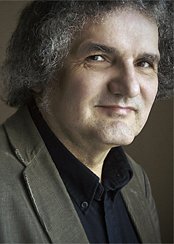

Position: Research Professor
Department: Modern History
Address: 1097 Budapest, 4 Tóth Kálmán Street
Room: B.5.29.
Phone: +36 1 224-6700/4662
Email:
Degree: DSc (1999), habilitated (2001), Correspondent Member of the Hungarian Academy of Sciences (2010)
Research Field: 19–20th century urban and social history; History of mentality;
The theory of historiography
Women as Domestic Servants: The Case of Budapest, 1890–1940. Institute on East-Central Europe, Columbia University, New York, 1989. 56. [Studies in Hungarian Social History III.]
Budapest. In: Housing the Workers, 1850–1914: A Comparative Perspective. Ed.: M. J. Daunton. Leicester University Press, Leicester, 1990. 149–182.
Political uses of tradition in postcommunist East Central Europe. Social Research, 60. (1993) 4. (Winter) 893-915.
Uses and misuses of public space in Budapest: 1873-1914. In: Budapest and New York. Studies in Metropolitan Transformation: 1870-1930. Eds. T. Bender–C. E. Schorske. Russell Sage Foundation, New York, 1994. 85–108.
Bürgerliches Heim und Interieur in Budapest. In: Bürgerliche Wohnkultur des Fin de siécle in Ungarn. Hg. Péter Hanák. Böhlau, Wien, 1994. 45–89.
Patterns of women's work in Hungary 1900–1930. European Review of History, 5. (1998) 1. 25-37.
Department stores and middle-class consumerism in Budapest, 1896–1939. In: Cathedrals of Consumption. The European Department Store, 1850–1939. Eds. Geoffrey Crossick–Serge Jaumain. Ashgate, Aldershot, 1999. 208–225.
Barmherzigkeit, Disziplinierung oder die Genealogie der sozialen Fürsorge. In: Eliten und Aussenseiter in Österreich und Ungarn. Hg. Waltraud Heindl et al. Böhlau, Wien, 2001. 39–67.
Parlor and Kitchen. Housing and Domestic Culture in Budapest, 1870–1940. Budapest, CEU Press, 2002. 281.
Forgetting the diversity of the national past: contrasting memories of the Hungarian Millennium. In: Habsburg postkolonial. Machstrukturen und kollektíves Gedächtnis. Hrsg. Johannes Feichtinger–Ursula Prutsch–Moritz Csáky. Studien Verlag, Innsbruck–Wien, 2003. 209–220.
Social History of Hungary from the Reform Era to the End of the Twentieth Century. Social Science Monographs, Boulder, Colorado – ARP, Inc., Highland Lakes, New Jersey. Distributed by Columbia University Press, New York, 2004. 771. (Co-authered with György Kövér and Tibor Valuch.)
Identity and the Urban Experience: Fin-de-Siécle Budapest. East European Monographs. Boulder, Col., distr. by Columbia University Press, New York, 2004. 271. [Hungarian Studies Series 5.]
Middle-Class Kinship in Nineteenth-Century Hungary. In: Kinship in Europe. Approaches to Long-Term Development (1300–1900). Eds. D. W. Sabean–S. Teuscher–J. Mathieu. Berghahn Books, New York–Oxford, 2007. 284–300.
Memory and Discourse on the 1956 Hungarian Revolution. In: Challenging Communism in Eastern Europe. 1956 and its Legacy. Ed. Terry Cox. Routledge, London–New York, 2008. 11–20.
Revolution, uprising, civil war: the conceptual dilemmas of 1956. European Review of History–Revue européenne d’histoire, vol. 15. no. 5. October 2008. 5. 519–531.
Trends in contemporary Hungarian historical scholarship. Social History, vol. 34. no. 2 May 2009. 250–260.
Grossstadterfahrung am Bespiel Budapests. In: Die Habsburgermonarchie 1848–1918. Hrg. Ulrike Harmat. Band IX. Soziale Strukturen, 1. Teilband. Von der feudal-agrarischen zur bürgerlich-industriellen Gesellschaft. Teilband 1/1. Lebens- und Arbeitswelten in der Industriellen Revolution. Verlag der Österreichischen Akademie der Wissenschaften, Wien, 2010. 539–560.
The Memory of Trianon as a Political Instrument in Hungary Today. In: The Convolutions of Historical Politics. Eds. Alexei Miller–Maria Lipman. Central European University Press, Budapest–New York, 2012. 91–115.
Changing Relationship between Collective Memory and History Writing. Colloquia, Journal of Central European History, XIX. (2012) 128–144.
Migration as a Cultural Phenomenon. The Hungarian Historical Review, 1. (2012) 3–4. 275–293.
Kossuth Lajos Tudományegyetem (Debrecen), Bölcsészettudományi Kar, történelem szakos középiskolai tanár (1974)
A történettudományok kandidátusa (1988)
Az MTA doktora (1999)
Az MTA levelező tagja (2010)
Az MTA rendes tagja (2016)
Eötvös Loránd Tudományegyetem (2001)
Budapest Főváros levéltára (1974–1982)
MTA Történettudományi Intézete (1982–2011)
MTA Bölcsészettudományi Kutatóközpont Történettudományi Intézet (2012–) kutatóprofesszor, témacsoport-vezető
Hajnal István Kör – Társadalomtörténeti Egyesület elnöke (2004–2010)
Az MTA Művelődéstörténeti Albizottságának a társelnöke (2012–)
Ránki György-díj (Soros Alapítvány, 1995)
Budapesti Könyvszemle, Történelmi Szemle, Tanulmányok Budapest Múltjából, Korall, Austrian History Yearbook (USA), A múlt ösvényein című könyvsorozat (L’Harmattan)
19–20. századi város-, társadalom- és mentalitástörténet
A történetírás elmélete
Nem található a szűrési feltételeknek megfelelő eredmény. Kérjük, változtasson a kereső feltételeken.
Eötvös Loránd Tudományegyetem Társadalomtudományi Kar (1994–)
Central European University (2006)
.
Copyright © 2013–2026. All rights reserved.
Sitemap
